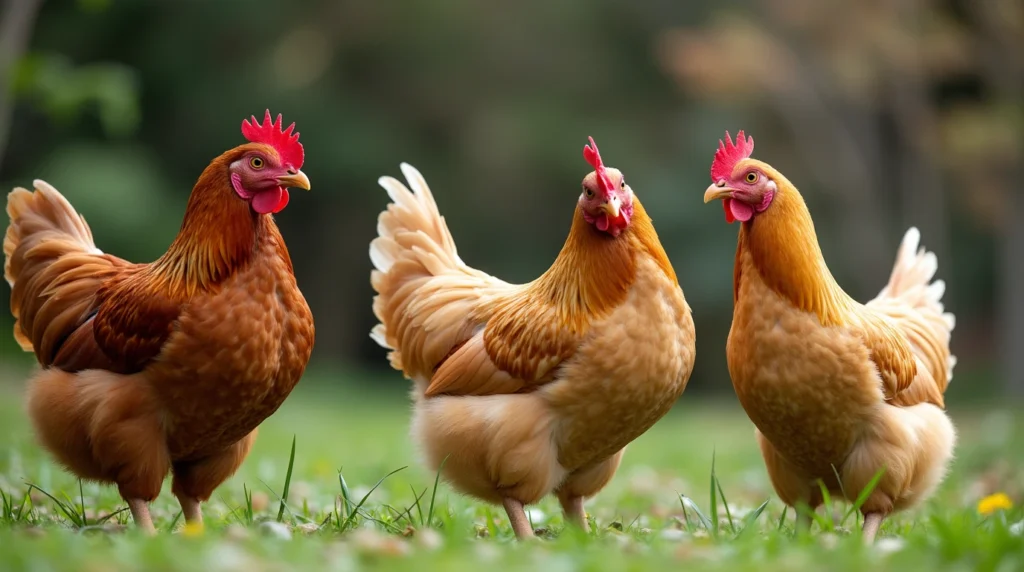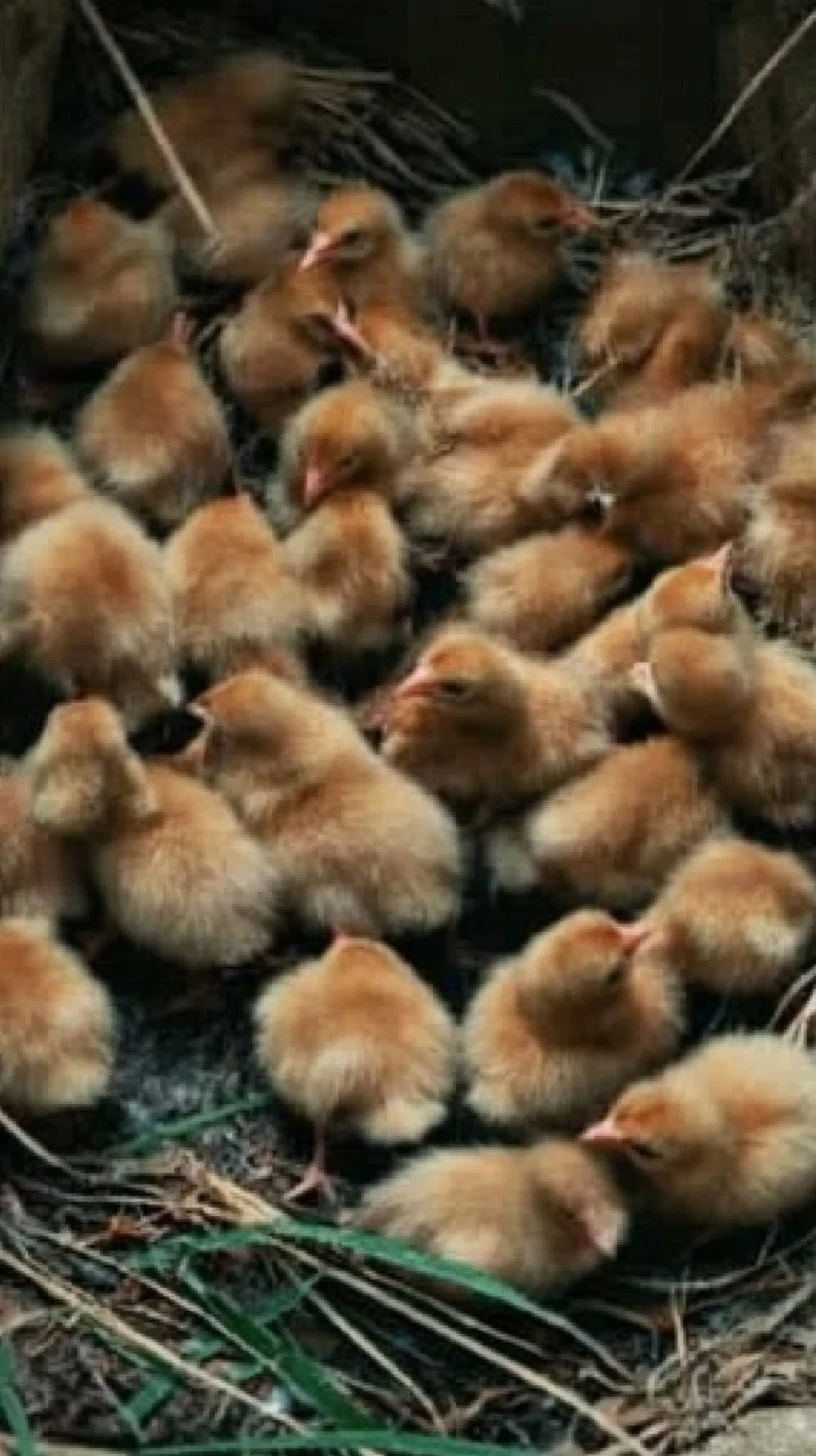Welcome to the vibrant world of backyard gardening! While the thought of cultivating your own fruits and vegetables might steal the spotlight, there’s another growing trend that adds an extra layer of excitement, utility, and charm to your garden: raising chickens. If you’ve ever been curious about the delightful sound of a clucking hen or the idea of fresh eggs just steps from your kitchen, you’re in the right place. In this article, we’ll explore the fascinating world of Chicken Breeds for Backyard garden, helping you find the perfect feathered friends for your gardening space.
Table of Contents
Why Raise Chickens in Your Garden?
The benefits of incorporating chickens into your gardening ecosystem are plentiful and multifaceted. Here’s why you should consider adding them to your backyard:
Fresh Eggs: Nothing beats the taste of fresh eggs. By raising your own hens, you’ll have a ready supply.
Natural Pest Control: Chickens are natural foragers and will eat insects and pests that could otherwise harm your garden.
Fertilizer: Chicken manure is a nutrient-rich fertilizer that can enhance your soil quality, helping your plants thrive.
Biodiversity: Adding chickens increases biodiversity in your garden, as they can help control weeds and add aeration to your soil.
Educational Experience: Raising chickens is a fun and educational journey for families, allowing kids and adults alike to learn about animal husbandry and sustainability.
What You’ll Need to Get Started
Embarking on your chicken-raising adventure requires some essential materials and tools. Here’s what you’ll need:
Chicken Coop: A safe and secure coop that provides shelter from the elements and protects against predators.
Chicken Feed: Quality feed formulated for the age and type of chickens you’ll be raising.
Watering System: Clean, fresh water is crucial; consider getting a water dispenser that’s easy to refill.
Bedding Material: Straw, hay, or wood shavings will help keep your coop clean and comfortable for your chickens.
Chicken Fencing: A sturdy fence to keep your chickens safe from predators and contained in your garden area.
Nesting Boxes: Space for hens to lay their eggs comfortably.
Choosing Your Chicken Breeds for Backyard Garden: Step-by-Step Instructions
Selecting the right breed of chicken is essential for a successful poultry-raising experience. Follow these steps to find chickens that fit your lifestyle and garden:
Step 1: Understand Your Needs
Consider your goals for raising chickens. Do you want them primarily for egg production, meat, or companionship? Your needs will influence your choice of breed.
Step 2: Research Different Breeds
Here are a few popular chicken breeds for backyard garden to consider:
- Leghorn: Known for high egg production, these birds are active foragers and adapt well to various environments.
- Rhode Island Red: Hardy, friendly, and great layers, they are also well-suited for backyard gardens.
- Silkies: Known for their fluffy feathers and sweet nature, Silkies are fantastic pets and good for small spaces.
- Plymouth Rock: These birds are friendly, dual-purpose chickens (egg and meat) that are great for beginners.
Step 3: Evaluate Your Space
Consider how much space you have available for your chickens and ensure they will have enough room to roam and forage.
Step 4: Purchase From a Reputable Source
Whether you’re buying chicks or adult hens, find a reputable breeder or farm. Health and quality should never be overlooked.
Step 5: Prepare Your Coop
Before you bring your chickens home, make sure their coop is ready. Clean and secure it, and ensure it has adequate ventilation.
Step 6: Introduce Your Chickens Gradually
When you first bring your chickens home, give them time to acclimate. Introduce them gradually to their coop and garden environment.
Common Mistakes to Avoid
Every beginner makes mistakes when starting a new venture. Here are common oversights to sidestep:
Ignoring Local Regulations: Check your local laws regarding raising chickens, as there might be restrictions or permits required.
Underestimating Space Requirements: Chickens need adequate space; overcrowding can lead to stress and health issues.
Neglecting Health: Keep a close eye on your birds for signs of illness and maintain regular vet check-ups.
Inadequate Fencing: Ensure your fencing is high and secure to protect against predators.
Improper Nutrition: Providing a balanced diet is crucial for the health and productivity of your hens.
Pro Tips from Seasoned Gardeners

Rotate Your Chickens: If you have the space, rotate your chickens to different areas of your garden. This helps prevent soil erosion and reduces pest populations.
Composting with Chicken Manure: Chicken droppings are a great addition to your compost heap. They are a green material that contains nitrogen, crucial for healthy compost.
Integrate Chicken with Garden: Allowing your chickens to roam in the garden (under supervision) can help with pest control and provide them with a natural diet.
Observing Behavior: Spend time observing your chickens. They will show you their preferences and habits, allowing you to adjust their care accordingly.
Stay Calm During Pecking Order: When introducing new chickens, watch out for pecking. Give time for hierarchies to establish.
Seasonal Considerations for Raising Chickens
While chickens are resilient animals, they do have seasonal needs that you should consider:
Spring
- Breeding Season: This is often the best time to start breeding if you desire chicks.
Summer
- Heat Management: Ensure your chickens have access to shade and plenty of water during hot days to prevent heat stress.
Fall
- Preparation for Winter: Start preparing your coop to keep your birds warm during the cold months. Insulate the coop and ensure proper ventilation.
Winter
- Winter Nutrition: Chicken feed may need an increase in calories to provide energy for warmth.
Natural Pest and Disease Prevention Strategies
Diatomaceous Earth: Sprinkle this natural product in your coop and around your garden. It helps control bugs and can keep your chickens healthier.
Regular Cleaning: Maintain a clean coop to prevent the spread of disease. Regularly replace bedding and clean water containers.
Herbs as Pest Deterrents: Plant herbs like basil, mint, and rosemary around your garden. They can deter pests and create a pleasant environment for your chickens.
Companion Planting and Soil Health
Chicken droppings can enrich your soil, but coupling your gardening approach with companion plants can yield even better results:
Chickens and Clovers: Plant clover in foraging areas for added nutrition for your chickens and improvements in soil health.
Marigolds: These flowers can deter pests and can coexist positively with chickens if planted nearby.
Harvesting and Post-Harvest Care
Once you have established your chicken setup, and they start laying eggs, understanding how to harvest and care for those eggs is essential:
Regular Collection: Collect eggs frequently to keep them fresh.
Storage: Store eggs in a cool, dry place. If kept properly, they can last a few weeks in the fridge.
Cleaning: Use a dry cloth to clean eggs gently. Avoid washing them immediately to prevent removal of the protective coating.
FAQs About Raising Chickens
What chicken breed is best for a backyard?
The Rhode Island Red is one of the best chicken breeds for a backyard. They’re hardy, friendly, good egg layers, and easy to care for—ideal for beginners and small spaces.
What kind of chicken is best for a garden?
Orpingtons and Silkies are great garden-friendly chickens. They’re gentle and less likely to dig up plants. Plus, they help control pests naturally without causing chaos.
What is the 90/10 rule for chickens?
The 90/10 rule means 90% of your chickens’ diet should be a balanced commercial feed, while treats (like fruits, veggies, and kitchen scraps) should make up no more than 10%. This keeps them healthy and productive.
What chickens don’t destroy the garden?
Breeds like Cochins, Brahmas, and Silkies are less destructive. They scratch less aggressively and are calmer, making them ideal if you want chickens that won’t wreck your plants or mulch beds.
Conclusion: Time to Get Clucking!
Raising chickens can transform your garden into a lively, rewarding experience. Remember, patience and observation are key to understanding your birds and optimizing their potential in your yard. So, roll up your sleeves, get to know your new feathery friends, and watch how they contribute to the ecology of your garden!
Are you ready to start your chicken-raising journey? Share your thoughts or questions in the comments below, and don’t forget to subscribe for more tips and tricks! The world of gardening and chicken keeping awaits you, and it’s time to embark on a beautiful adventure. Happy gardening!
For more gardening tips follow us on Pinterest
